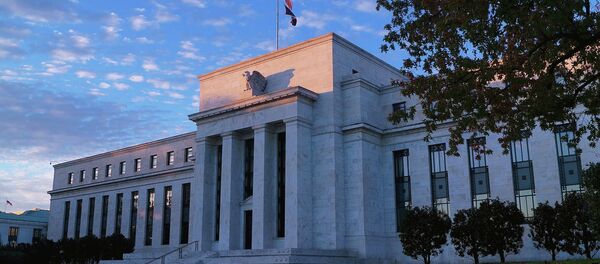Currently, the central bank largely operates on its own, setting financial policy without consulting with Congress.
A bill sponsored by Sen. Rand Paul (R-Kentucky) seeks to change that, but Reuters reports it’s a move bankers don’t like, because while they may not like Fed regulations they consider restrictive, they support the Fed’s independence on monetary issues and fear that any legislative input would inject politics into the process.
A Reuters survey of 24 state banking groups found that four are against the legislation, with five more saying they would oppose it if the bill got any further.
The Senate Banking Committee could take up the matter soon, and bankers are ramping up lobbying efforts. One group, the Ohio Bankers League, is sending 82 members to Washington this week.
"We feel the current system works well, it's time-tested, and there are all kinds of reasons why political influence at the Fed is a bad thing," Bob Lameier, president of the Ohio group and head of the Miami Savings Bank in suburban Cincinnati, told Reuters.
Lamieir’s bank is one of more than 6,000 community banks nationwide that represent 93% of all lenders in the country. Community banks account for almost 45% of all of the small loans to businesses and farms made by banks across the country.
Even though there is that growing list of bankers opposed to the bill, the fact that Republicans control both houses of Congress is significant, as more GOPers support opening Fed monetary policy to congressional scrutiny.
“This secretive government-run bureaucracy promotes policies that have impacted the lives of all Americans,” Senator Paul said. “Citizens have the right to know why the Fed’s policies have resulted in a stagnant economy and record numbers of people dropping out of the workforce.”
This week Federal Reserve chair Janet Yellen will testify before the Senate Banking Committee for the first time since the Republican takeover and she could be asked about the legislation.
The Obama administration considers the legislation unnecessary, arguing the Fed is increasingly more transparent about its decisions and regularly publishes policy updates. President Obama has said he would veto a Fed audit bill should it get to his desk.


